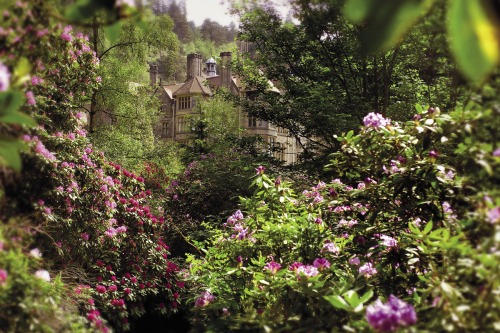Meet the Yorkshire Living History Group Keeping the Memory of D-Day Alive

From military displays for the public to visiting Normandy and speaking to veterans, this living history group is keeping the memory of D-Day alive
In honour of the 80th anniversary of D-Day (the large-scale allied invasion of France which helped to turn the tide of the war), a whole host of events took place across the UK including beacon-lighting ceremonies, air shows and vehicle displays. At many of these events you could expect to find local reenactment groups dressed in their military best, teaching the public about the brave acts of local regiments during the Second World War.
For some this is simply a way to explore a special interest, but for others including Michael Lycett of the East Yorkshire Regiment Living History Group, it’s an important way to preserve the stories of veterans who are no longer around to tell those stories themselves.
Micheal appreciates that military reenactment is seen as a niche interest. ’Living history is a strange hobby,’ Michael says. ‘In the post-war era nobody would have done it because everyone was trying to forget about what had just happened.’ This began to change however and around 40 years ago, the East Yorkshire Regiment Living History Group began as a way for those who hadn’t lived through the war to privately explore it for themselves in a way that felt real. ‘There was a small group who had a specific interest and they wanted to put the uniforms on and live a different life,’ Michael explains. ‘It was more about them doing that than being in front of the public and telling the stories of the men who were there.’


Fast forward to today however, and the focus has shifted entirely. ‘Over the years our group has morphed from that secluded group of people into a much more public display. We primarily go to shows in front of the public with all the kit and equipment that was worn and used by the men, and that gives us a vehicle to talk to them about the men who did it.’
But who were the Second Battalion of the East Yorkshire Regiment? ‘The East Yorkshire Regiment was seen as a very solid and very dependable regiment that you could put into a fight when things were a bit sticky and you could rely on them to get the job done,’ Michael explains. This dependability made them essential to the success of D-Day. ‘They have the dubious honour of being asked to provide two battalions for D-Day. The Second Battalion East Yorkshire Regiment landed on Sword beach and the Fifth Battalion landed on Gold beach.
‘The Second Battalion were in the assault, and were some of the first ones to touch the beach and took the brunt of the German defences. They walked into a wall of fire and on Sword beach took casualties along the lines of those suffered by the Americans on Omaha beach.’
As the decades have passed since that day, the numbers of veterans still around who can tell their own stories has dwindled, and reenactment groups like Michael’s work hard to pick up the mantle. ‘Over the years I’ve met a fair number of veterans. When you sit and listen to their accounts of what happened and what they had to go through, it means that anything that brings the suffering and sacrifice to the wider public is a good thing.
‘From my personal viewpoint, now the veterans are not here to tell their own story, it’s more important than ever that we go and do it for them – that’s my driving force. I’ve spoken to veterans who’ve told me stories and I feel suitably qualified to pass them on. These people were bus drivers, they were barbers, they were butchers, they worked in factories, and they were just pulled out of that.’
Michael has found that groups like his not only educate the public, but can be a way for remaining veterans to connect and open up about their past. ‘We would find that when they saw us in the uniform that they had worn, they would want to talk to us and they felt more comfortable because we look like the people they remember and you would often have a veteran tell you a story that they have never told their families,’ he says. ‘For me, I think it gives an overview and connection to what was going on better than just having stuff on a table.’



So far for the group, 2024 has included a trip to Normandy and a display at York Army Museum. They have upcoming demonstrations at the Yorkshire Wartime Experience in Hunsworth in August and an event at Eden Camp in September. For those looking to get involved with a local living history group, Michael advises careful research. ‘We put a lot of effort into being hugely accurate, so when we put on a display we run it as a military unit and we expect a level of discipline (for the show only),’ he says. ‘When we’re in front of the public, we act the part and we expect people to play that part to the best of their ability. Other groups are happier to sit around the equipment and be quite relaxed about it.
‘What I would say is go to events and look at what suits you because I think it’s what you want it to be (there’s some groups that just do the 40s dancing) and I think if you want to get involved with it, go to the shows and look around. There’s groups that do American, there’s groups like us that do British, there’s people that do the Home Guard – there’s a whole array of stuff that you can go and look at.’
Keep up to date with the group via Facebook at facebook.com/eastyorkshireregimentlivinghistory.











